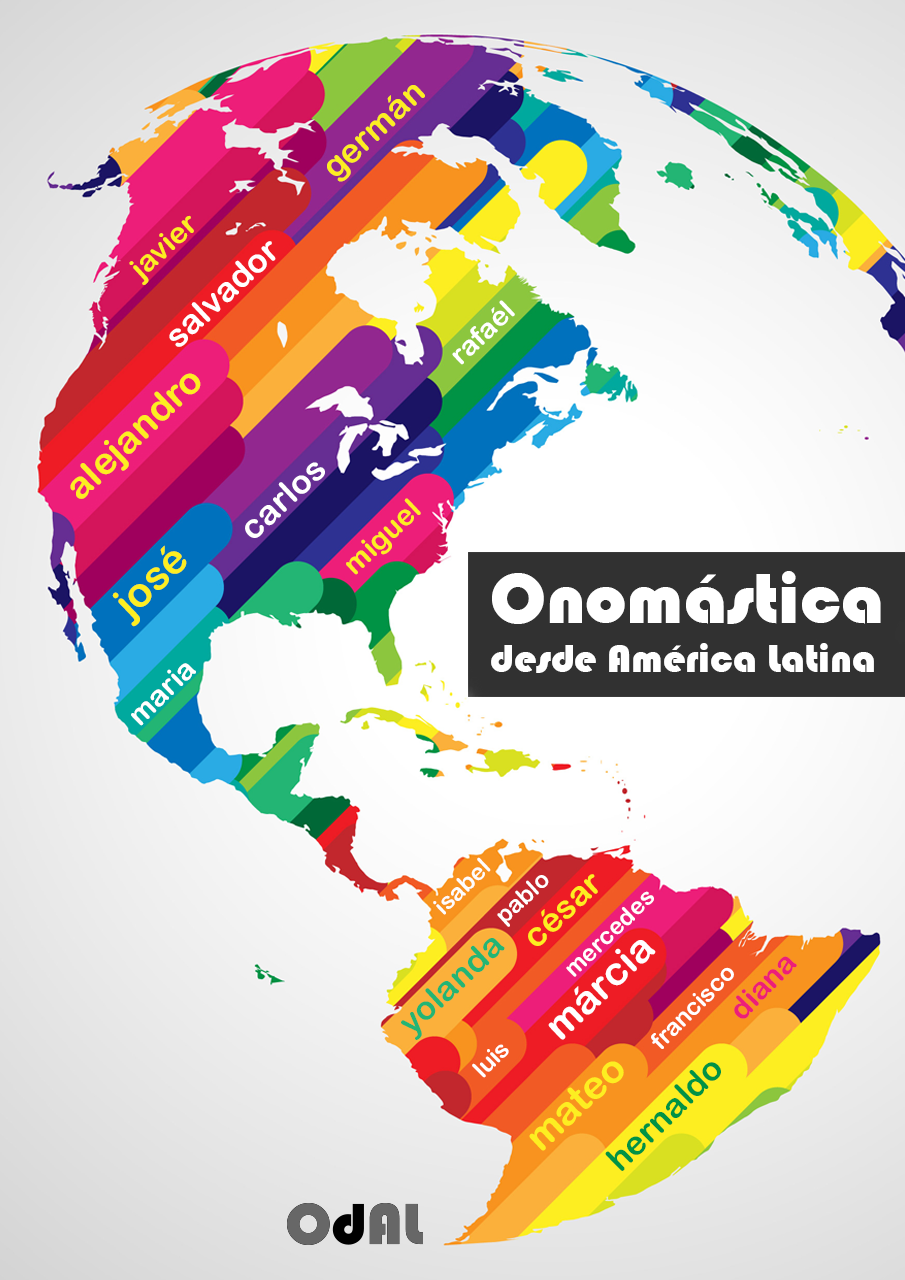Nombrando América. Una aproximación a la antroponimia y toponimia europea en el Nuevo Mundo
DOI :
https://doi.org/10.48075/odal.v4i1.31969Mots-clés :
Onomástica europea en América, Toponimia americana, Antroponimia americanaRésumé
Este artículo se centra en el análisis de las dificultades que plantean las fuentes y la metodología de trabajo a la hora de investigar sobre la antroponimia y toponimia americanas, y resume las estrategias seguidas por los distintos autores del dossier dedicado a los nombres europeos en América, desde las costas de Terranova hasta el sur de Brasil, para alcanzar sus objetivos. Dada la fragilidad del patrimonio onomástico en lenguas minoritarias, que con frecuencia no figura en mapas oficiales, el artículo propone como campo de investigación el estudio de los nombres asignados a las nuevas poblaciones que son los condominios o urbanizaciones, como ya se ha realizado en algunos lugares de Europa. Estos nuevos nombres remiten con frecuencia a los antiguos propietarios del terreno o idealizan aspectos del pasado que de otro modo no se reflejarían en la toponimia.
Références
Bertaux, D. & Bertaux-Wiame, I. (1988). Le patrimoine et sa lignée: transmissions et mobilité sociale sur cinq générations. Life stories/Récits de vie, (4), 8-25.
Gebauer, J. E., Leary, M. R., & Neberich, W. (2012). Unfortunate first names: Effects of name-based relational devaluation and interpersonal neglect. Social Psychological and Personality Science, 3(5), 590-596.
Scott, J. C., Tehranian, J., & Mathias, J. (2002). The production of legal identities proper to states: the case of the permanent family surname. Comparative studies in society and history, 44(1), 4-44.
Thun, H., & Wilkin, R. (2018). A história que antecede a escrituralidade dos hunsriqueanos brasileiros: cartas do período napoleônico (1805-1813). Cartas de imigrantes de fala alemã: pontes de papel dos hunsriqueanos no Brasil. São Leopoldo: Oikos, 31-46.
Tort i Donada, J. & Panareda i Clopés, J. M. (2011). Las nuevas toponimias. Sobre el papel de los nombres de lugar en la renovación del" imaginario geográfico" de las áreas turísticas de litoral barcelonés. En Espacios y destinos turísticos en tiempos de globalización y crisis (p. 30). Universidad Carlos III de Madrid, 7-18.
https://www.arrazola.org/finca-arrazola-ciudad-de-guatemala/ (consultado el 8/08/2023).
Téléchargements
Publié-e
Comment citer
Numéro
Rubrique
Licence
(c) Tous droits réservés Ana Zabalza Seguin 2023

Cette œuvre est sous licence Creative Commons Attribution - Pas d'Utilisation Commerciale - Partage dans les Mêmes Conditions 4.0 International.
Droit d’auteur « Creative Commons »
Politique pour les revues en accès ouvert
Les auteurs qui publient dans cette revue agréent les termes suivants :
1. Les auteurs gardent leurs droits et octroient à la revue celui de première publication. Le texte sera sous licence « Creative Commons Attribution » qui permet le partage du travail mentionnant l’attribution à l’auteur et la première publication dans cette revue.
2. Les auteurs ont l’autorisation de prendre ailleurs des contrats supplémentaires pour la distribution et diffusion non exclusive de leur texte publié dans cette revue (par exemple, le publier dans un dépôt numérique institutionnel ou en tant que chapitre d’un livre).
3. Les auteurs ont l’autorisation et sont encouragés à publier et à distribuer leur travail en ligne (par exemple, dans des dépôts numériques institutionnels ou dans leur propre site personnel) à n’importe quel moment y compris avant ou pendant le processus d’édition, étant donné que cela peut avoir des effets productifs, tels qu’augmenter l’impact et le nombre de citations du travail publié (cf. O Efeito do Acesso Livre).
Licence « Creative Commons »
Cette publication se trouve sous licence Creative Commons- Attribution- Utilisation non commerciale, -Pas d’œuvre dérivée 4.0 International, ce qui permet de partager, copier, distribuer, montrer ou reproduire la totalité ou des parties des travaux, tant que ce n’est pas fait à des fins commerciales et que les auteurs et la source sont cités.

